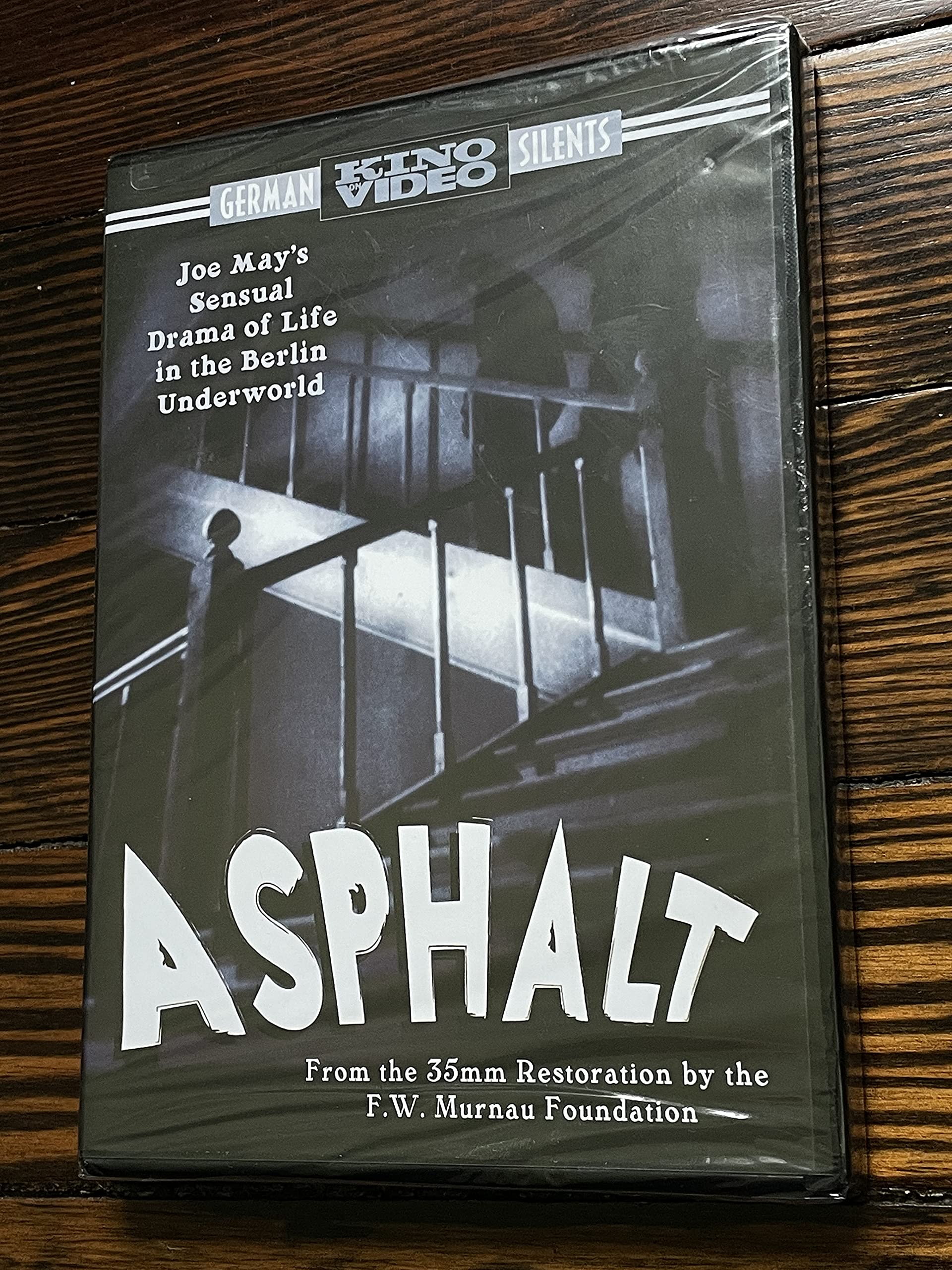معلومات عنا
دعم العملاء

Desert Online General Trading LLC
Warehouse # 7, 4th Street, Umm Ramool, Dubai, 30183, Dubai
حقوق الطبع والنشر © 2024 Desertcart Holdings Limited


Product Description Gustav Frahlich, best known as the young protagonist of Metropolis, stars as Holk, a strait-laced traffic cop who has the simple task of escorting a diamond thief to the police station. However, the thief is the exotic and beautiful Else (played by Betty Amann), which makes the task far from simple. The stage is thus set for a scandalous turn of events, and the drama is made all the more exciting thanks to the dynamic photography of Gunther Rittau (The Blue Angel) and the equally impressive sets of Erich Kettelhut (Metropolis). .com From its amazing opening sequence of human and vehicular traffic sweeping through a nighttime cityscape entirely created inside the Ufa film factory, Asphalt marks a late addition to the eye-catching, mind-bending artistry of the German Expressionist cinema of the '20s. Released in March 1929, when silents were on the way out, until recently it was just a title, and the source of a few grabby stills, in the film history books. In this most complete restoration yet, it stands as the ultimate "street film," a genre prized for bravura artifice and potent allegory. In such urban symphonies, the cinema was simultaneously defining and reimagining the essence of modernity in images both hypnotically dark and ablaze with shattered light. The story is a simple one, but told with psychological subtlety and strikingly fluid camerawork and editing. A young cop (Gustav Fröhlich, the hero of Metropolis) with rectitude in his veins apprehends a sneak thief (Betty Amann) in the act of stealing a diamond, then fails to turn her in. There's a gratifying mutuality to their seduction; although the lady's tiger-like leap upon her captor is astonishingly feral, she's soon as vulnerable and perplexed in their relationship as he is. A subplot involving her longtime lover, a master criminal (Hans Adelbert von Schlettow), eventually intersects with their love affair. Up to the very end--which somewhat anticipates Robert Bresson's Pickpocket--we can't be sure who's going to be sacrificed to save whom. Director Joe May was no auteur on the order of Fritz Lang or F.W. Murnau; it's hard to locate an artistic personality in his movie. But he and cinematographer Günther Rittau had a state-of-the-art camera dolly to play with, making the German ideal of "the unfettered camera" a freewheeling reality. Amann is beguiling as a Louise Brooks knockoff, an ambulatory white fur under a cloche hat who evolves into a dark, hieratic figure of Fate. --Richard T. Jameson
ترست بايلوت
منذ شهر
منذ 4 أيام